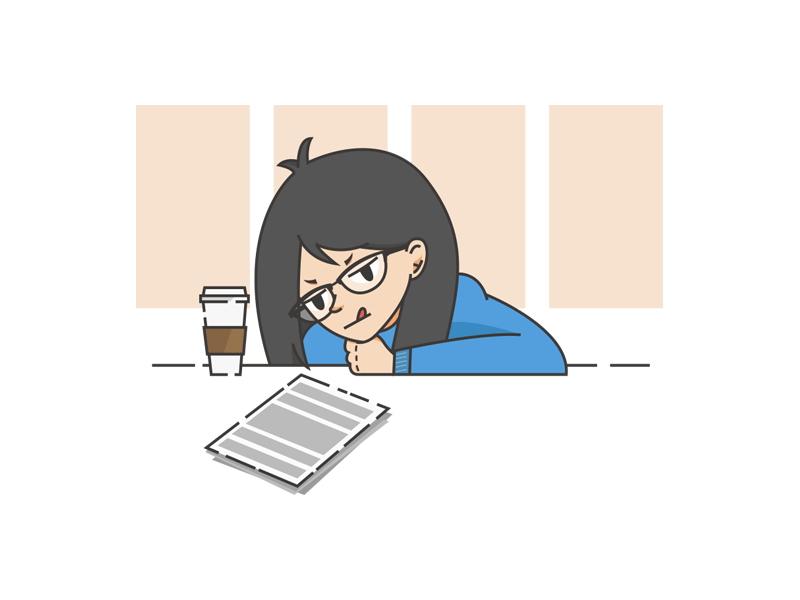A few of the secret keys to success in school are the impactful taking of notes. Professors should use a substantial amount of time during class time to examine the information mentioned. It is quite hard to recall certain features, significant event abstractions, without good/effective notes from class hours.
10 Ways to Take Makes Notes Effectively
If you want to enhance the efficiency of your study as well as exam performance, you need to figure out how to take notes. A critical feature in the student academic method is effective note-taking.
1. Make reading of topics that are to be taught
Students prepared for topics generally take higher grades than unprepared students. Planning ahead involves reading before class as well as assessing notes from lecture notes. Students who analyze their notes from previous classes will also have a good educational context in the following lecture and can question about the misleading topics from their previous lesson which they had not fully understood.
2. Go for handwritten notes over digital notes
The world is becoming increasingly digital, and the fact that students take notes with tablets and laptops is getting extremely prevalent. However, early research suggests that taking notes on such devices reduces the remembrance of a student actually, rather than by hand. Students must be pickier about the notes they start taking by hand so that they take the lecture more constantly. This implies that often children know better their handwritten notes than their digital notes. In favor of getting notes with a traditional paper pen, students could also consider dropping electronic devices.

3. Make precise notes
Make sure you take easily readable and precise notes because, once the class is complete, it is not unusual to forget crucial facts discussed. Students often understand the lecture by the teaching assistant and think they’re going to remember it all so that they can only skip out on stuff later because then they can’t even remember what they wanted. Students who hold accurate notes can then examine key issues later, recollect necessary information, strengthen knowledge, and study concepts that they did not fully understand during the lecture. Furthermore, since teachers frequently cover a wide variety of subjects during their courses, effective notes make it possible for students to focus on the relevant subjects.
4. Tally notes with your classmates
Evaluate your notes with notes from other students after class comes to an end, to ensure they are as clear and precise as necessary. This is beneficial because classmates often write down information about the lecture that you have forgotten or missed. This approach makes class notes more comprehensive and accurate.
5. Avoid getting distracted easily
Effective note-takers prevent distractions in the classroom. This may include sitting in places with fewer diversions and not attending classes with friends you could talk to during lessons. Some students would even sit in places where it is hard to keep an eye on the clock.

6. Try organizing your notes perfectly
Date, class, and subject-organized notes facilitate the identification of particular lecture details. It is also a smart option to separate knowledge from diverse dates and classes or open up a new sheet of paper for each lecture.
7. Make questions
No matter how smart a student is, they are compelled to get confused from time to time with unresolved questions. Therefore, after class or in the following courses, it is a good idea to write down questions. You can also answer your own questions via an internet search, a teaching assistant, a student, or by using reference books but only when you have given the lecture your questions in precise detail.
8. Write abbreviations
Because teachers generally cover a large number of things during each lecture, it can be difficult to write down all their words. Therefore, we highly suggest that you use symbols and that when do you abbreviate complex words and use short words. Many students use the mentioned symbols and abbreviations to take notes: & (and), eg (e.g.) and i.e. (that is), etc. Generate a key of your most widely used abbreviation when using abbreviations so you didn’t miss what it really is.

9. Make clear notes and with readable handwriting
If you didn’t decipher them, the amplest notes are of no benefit. Therefore when taking notes, it is important to have understandable writing. You should also leave your notepad with space in the margins and in close proximity to key conceptual elements to add important details on previous subjects covered in future lectures.
10. Revise the notes you have created
It is preferable to revisit notes immediately after class to maintain the information discussed during lectures. This helps you fully comprehend the lecture and allows you to focus on what you have just studied for a long time. Just before your next lecture, you should re-evaluate your notes for a second time. This helps to refresh essential key concepts in your mind and prepares you for the next lecture. Between your lectures and your examinations, you should continue reviewing your notes regularly.
By: Poorva Meshram






